Are you feeling the pressure of an impending contract expiry? Renegotiating a contract can seem daunting, but it's an essential step to ensure that your needs are met and your goals align with those of your partner. Whether you're aiming for better terms, adjusting for changing circumstances, or simply trying to maintain a positive relationship, crafting the right letter is vital. Let's dive into the key components of a successful contract renegotiation request and explore tips that can help you navigate this process smoothly.

Clear Introduction and Purpose
In the competitive landscape of business partnerships, effective contract management is critical for fostering long-term relationships. A contract renegotiation request serves as a formal communication tool that highlights the need for revisiting the existing agreement, typically initiated due to changes in market conditions, financial circumstances, or organizational objectives. This request should succinctly outline the purpose of renegotiation, whether it involves adjusting terms, costs, or deliverables, ensuring clarity in the intent to enhance mutual benefits. By establishing transparent negotiation goals, such requests pave the way for improved collaboration while addressing evolving needs within the partnership framework.
Specific Contract Terms to Renegotiate
In recent times, companies are continually aiming to improve their operational efficiencies and adapt to volatile market conditions. As a result, many organizations are embarking on contract renegotiation efforts to align their existing agreements with current business strategies. Key terms to consider include pricing structures, delivery timelines, and service level agreements (SLAs). For instance, adjusting pricing may involve analyzing cost fluctuations or changes in demand, while delivery timelines may need reevaluation in light of logistical challenges experienced, especially in global supply chains affected by events like the COVID-19 pandemic. Additionally, refining SLAs can help ensure quality and performance standards meet the evolving needs of businesses, thus fostering stronger partnerships. Such renegotiations become imperative as they not only provide financial benefits but also create opportunities for enhanced collaboration and innovation between parties.
Justification and Supporting Evidence
Formal requests for contract renegotiation often stem from changing circumstances or unmet expectations. Businesses frequently encounter unforeseen challenges, such as economic downturns, significant shifts in market demand, or emerging technologies that alter operational capabilities. A thorough examination of current market conditions, including industry benchmarks and competitor analysis, is crucial. Utilizing financial reports or case studies to illustrate key performance metrics can strengthen the argument for renegotiation. Documenting specific areas where the existing contract has proven to be less beneficial, such as pricing structures or deliverable timelines, provides concrete evidence. In addition, testimonials from stakeholders or partners regarding the need for changes can bolster the case for revisiting terms, ensuring that both parties can adapt to new realities while maintaining a mutually beneficial relationship.
Proposed New Terms
Renegotiating a contract often entails adjusting the existing terms to better suit the parties involved, including changes to deadlines, payment structures, or specific obligations. Clear understanding of the original contract details is essential, as it sets the stage for proposed new terms that reflect the evolving circumstances. For instance, revising a payment schedule from monthly installments to quarterly payments (outside of industry standards) may provide necessary financial relief. Additionally, extending project deadlines can accommodate unforeseen events, such as economic downturns or supply chain disruptions, which have affected many industries, particularly construction and manufacturing, during 2020-2023. Each proposed change should align with the overall objective of maintaining a mutually beneficial relationship and ensuring that all parties remain committed to the agreement.
Call to Action and Next Steps
In the context of contract renegotiation, clear communication is essential. Companies often prepare formal requests to initiate discussions regarding terms and conditions. The key points of focus include identifying specific clauses or provisions that may require adjustment. For instance, financial terms (such as pricing adjustments or payment schedules) are often pivotal in negotiations. Additionally, outlining proposed timelines for discussions, including target dates for meetings or response times, provides a structured approach. It's imperative to emphasize the mutual benefits of renegotiation, such as enhanced collaboration and alignment with current market conditions. Lastly, a call to action should encourage prompt engagement, inviting the other party to confirm their availability for an initial conversation to discuss the proposed changes.
Letter Template For Contract Renegotiation Request Samples
Letter template of request for contract renegotiation due to changing business circumstances
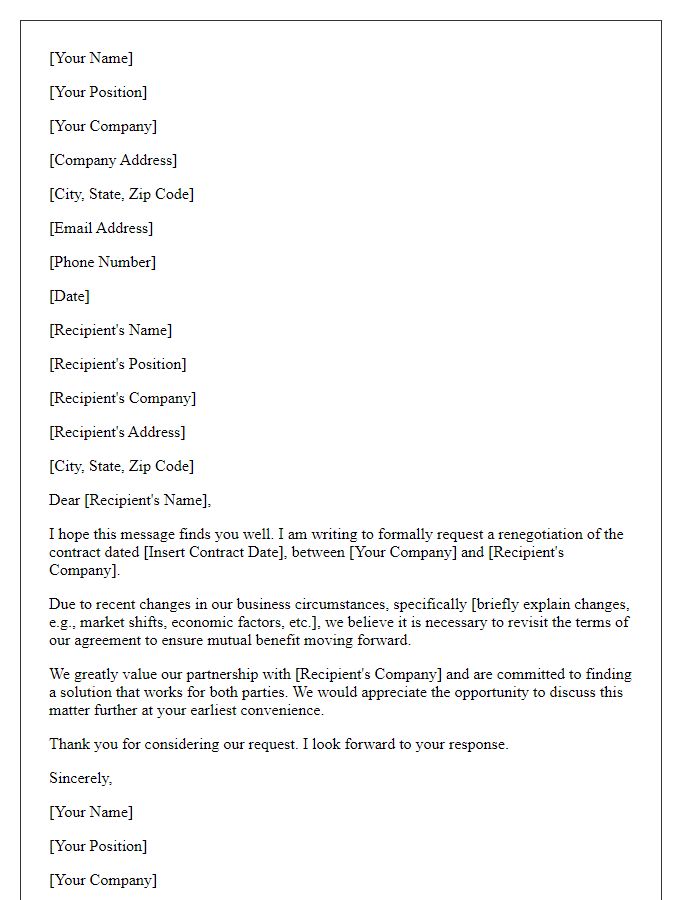
Letter template of proposal for adjusting contract terms for better alignment
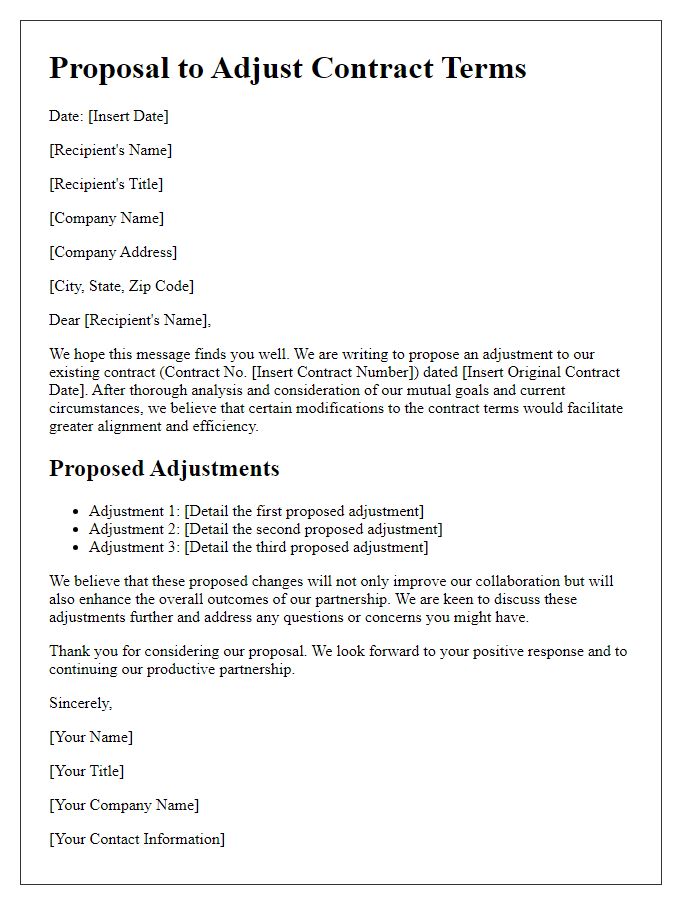
Letter template of notification regarding contract renegotiation intentions
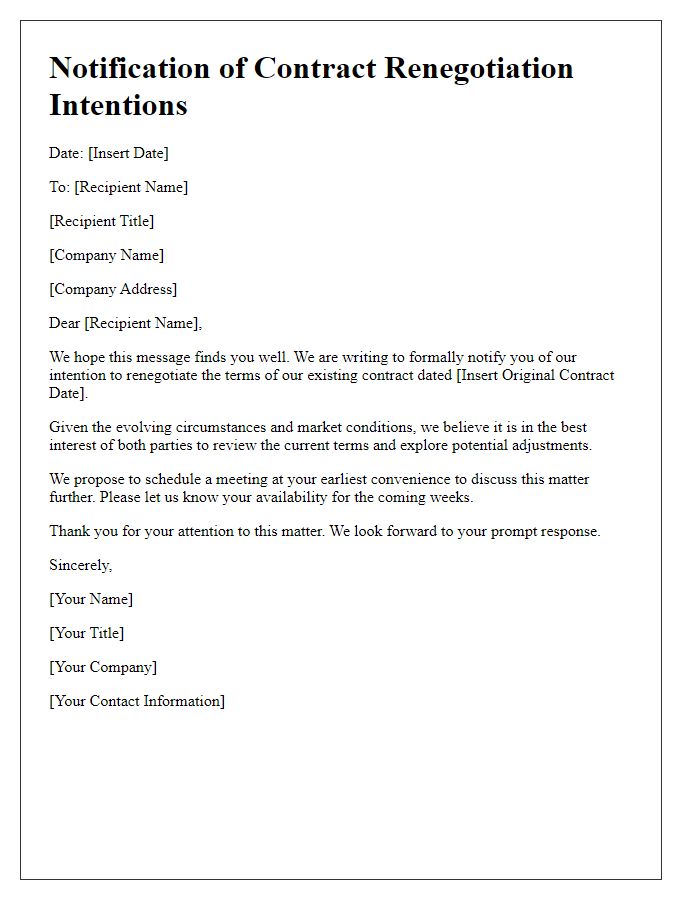
Letter template of demand for contract adjustments based on performance review
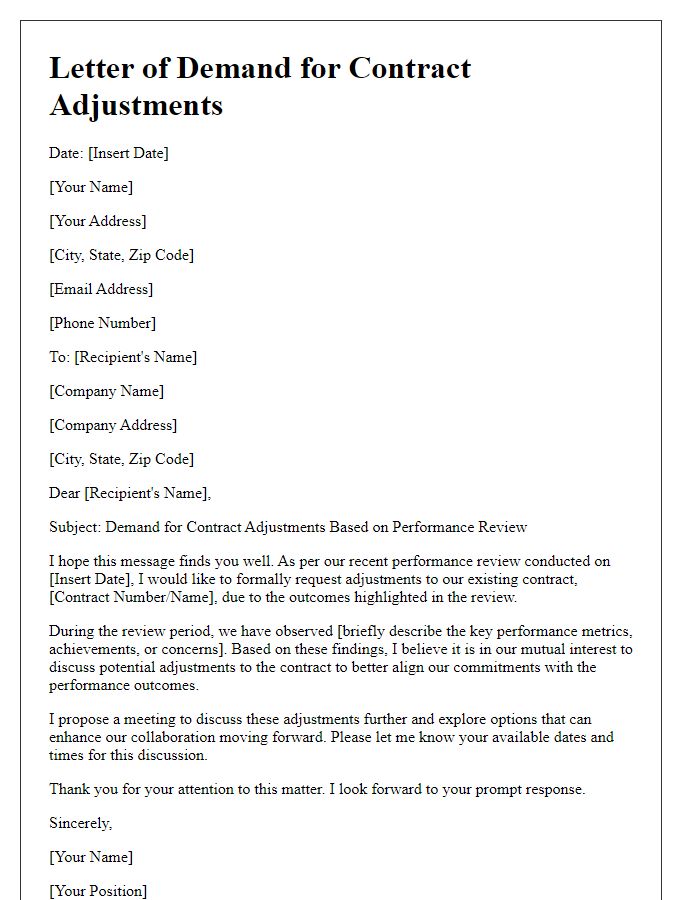

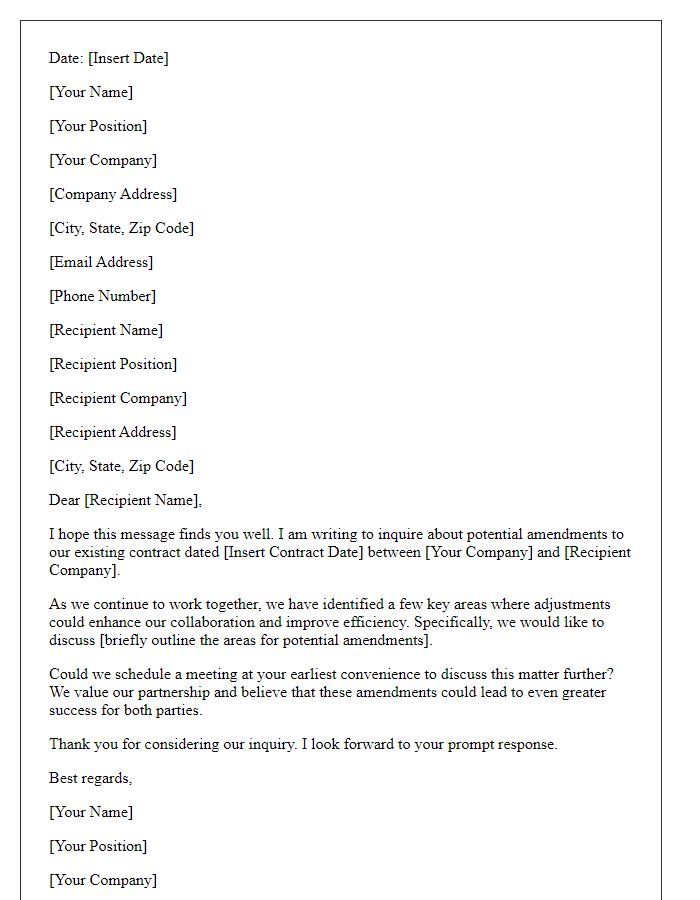
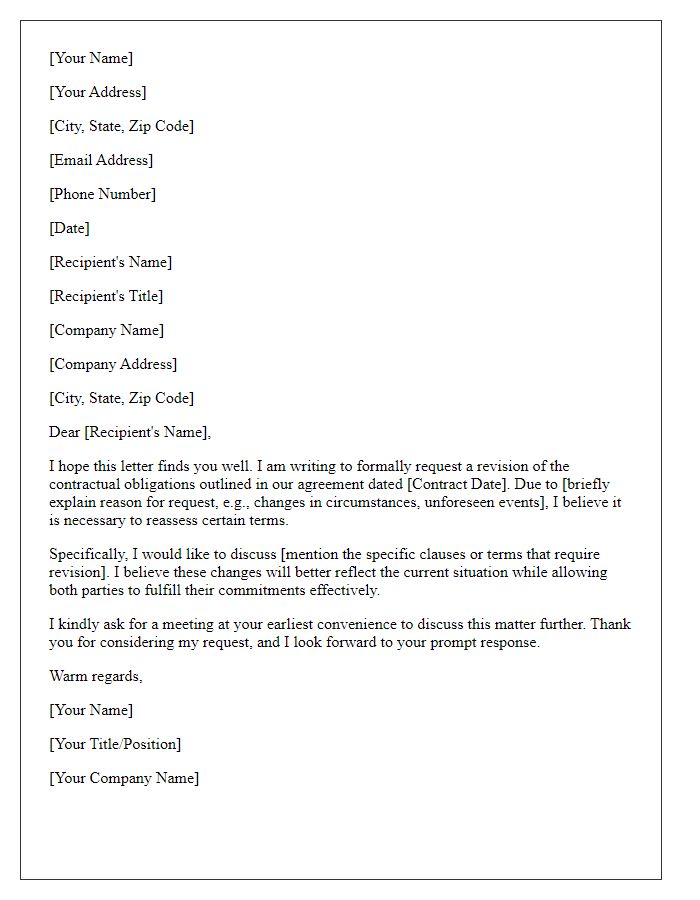
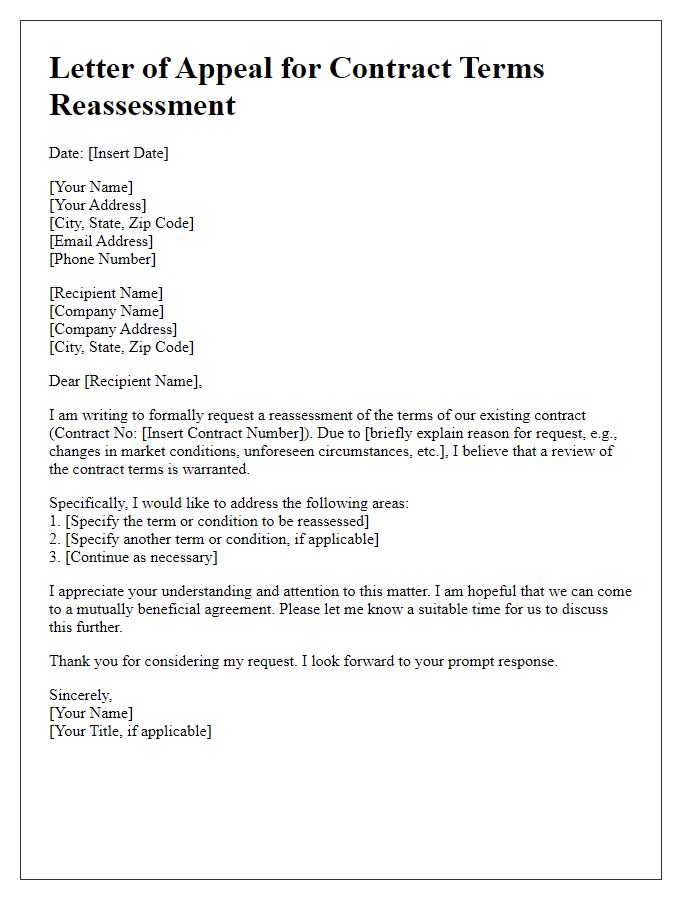
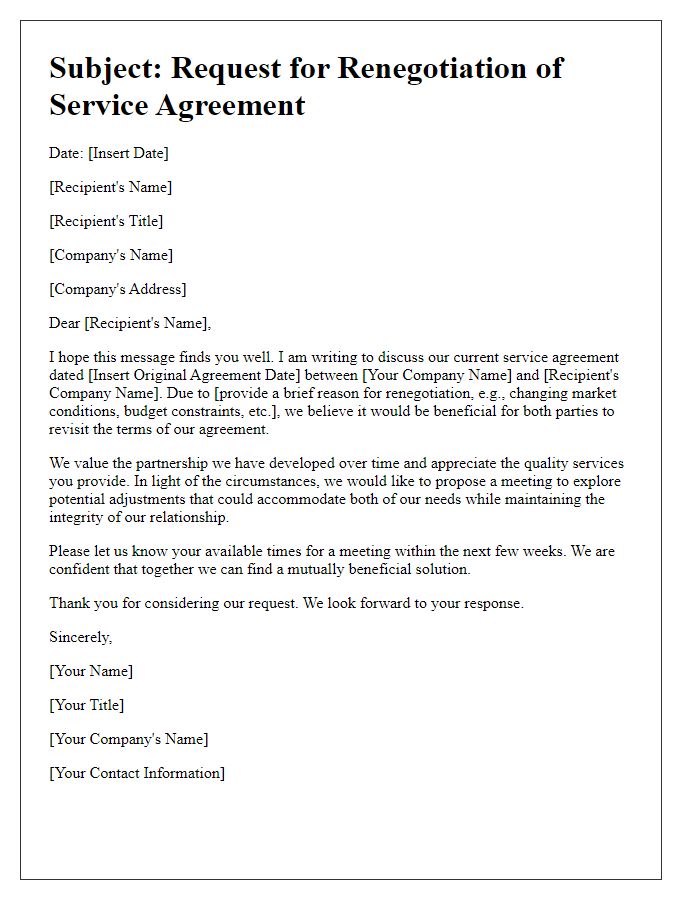
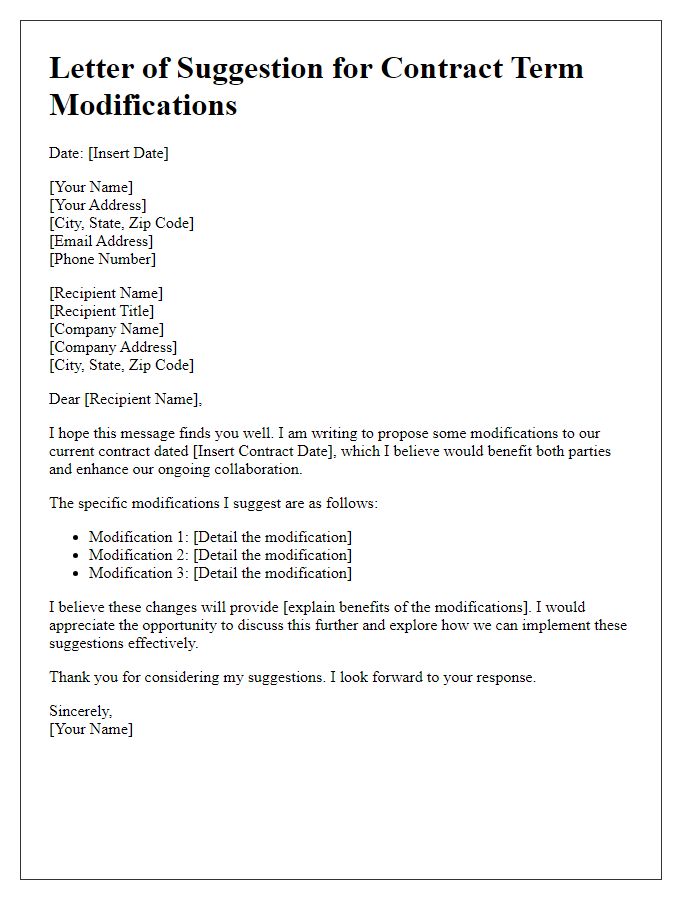
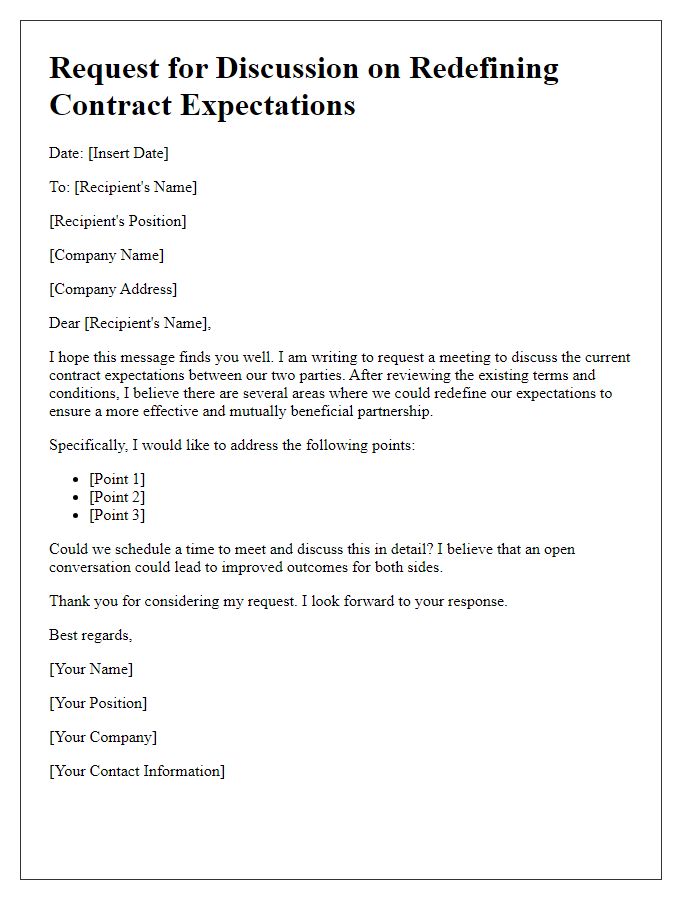

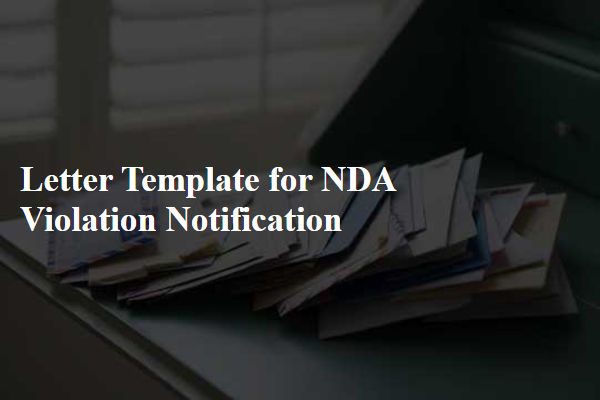
Comments